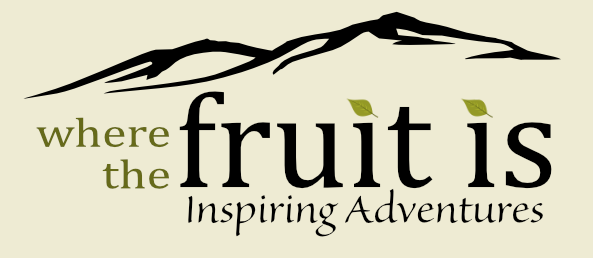Adventure & Holding a Space for our Children: Part 1
In this fleeting moment boy and man are learning a lot
“ADVENTURE: THE FEELING YOU GAIN FROM AN UNCERTAIN OUTCOME.”
A vision for the results of adventure:
Picture this, your once young child is leaving for college. You swell with pride as you watch them go. This transition towards independence was both satisfying and easy. When you look at your offspring you see an accomplished and beautiful being. She is resilient, fantastic at solving problems, can rise to any occasion, trusts people and is trustworthy. You enjoy that he can see an issue before it has a chance to arise. He also deals with it effectively and efficiently. She is passionate, loves this world she calls home and strives to protect it. His smile disarms you and the wild look in his eye is immediately attractive and tells numerous stories. This is uncanny for one so young.
This is not fanciful, it is a reality because you choose to share adventures with your child. What is more, you model good practices and teach how to have adventures.
This is the first of a two part article. In it I will describe why adventure is important and give a philosophical back story. In the next I will describe techniques to make the magic happen.
Firstly, what is an adventure?
After reading countless definitions and academic articles while teaching adventure leadership I opted to define it for myself. I have always seen adventure as an emotional response to a stimulus that I do not have total control over. Therefore, “adventure: the feeling you gain from an uncertain outcome.” As an adolescent I courted adventure for the thrill it provided. This often involved significant risk. As I aged I realized it was not so much adrenaline that I was seeking. It was the other result of uncertainty, a feeling of complete presence. Being here and now is a by product of managing potential hazards and fickleness.
Meeting people learning meditation in Kathmandu, I realized I had developed similar results. Rather than sitting and focusing on my breath though, I committed myself to high levels of uncertainty with large consequences.
I want to be clear here that adventure does not have to mean setting off on an expedition to Siberia. You can have one in your kitchen. However, adventure is powerful and the more a situation lacks predictable outcomes the greater the emotional response. This heightened awareness naturally increases cognitive dissonance. It also improves the chances for learning and defining character.
Are children ready for adventure?
Here is another thought to ponder. “How well versed are children to deal with risk if allowed to do so from a young age?” The child who is allowed to be adventurous as a toddler, will learn how to manage risks as a teen. This is a good thing because consequences are far greater at this age. By cosseting children and smothering them in bubble wrap we are doing them a huge disservice. Life is not risk free and young people need to develop the skills necessary to navigate an uncertain world. Climbing trees and extending recess in a suitably natural environment is a wonderful place to garner the necessary strategies. Having parents who encourage adventure and spending time in nature is going to serve these children incredibly as they grow. Even better is when parents feel comfortable to let their children have their own adventures.
The beauty of organizing adventure for our children is that we have far more experience than they do. Often we know a likely outcome when they do not. Consequently, we can make good judgments when modeling risk managment with them. We can see if a risk is real or perceived and we can help direct them towards perceived risks. One additional thought here is that if you do not incorporate any adventure of your own it will feel disingenuous.
Are risk and adventure the same thing?
It is important to separate the difference between risk and uncertainty. For example, walking on a slack-line two feet above the ground, I do not know if I will be successful. That is until I have sufficient experience. Yet, I know I am unlikely to significantly hurt myself. Walking that line above a hundred foot canyon, the uncertainty is the same but the risk has increased considerably. We want to provide the opportunity for uncertainty while being aware of the risk and managing it appropriately.
It is also important to let children fall and fail and to be slow to pick them up. We need to allow them the chance to come to their own conclusions of whether something hurt or went wrong. More often than not they will pick themselves up, dust themselves off and move on. Isn’t this what we want for them when they go through the trials of life? Adventure ultimately breeds tenacity amidst set backs when we do not interfere. At the same time we want our children to know we are there for them, a constant source of love. However, holding a space for our children is very different to controlling every outcome for them.
Are there enough reasons to support incorporating uncertainty?
So apart from developing emotional intelligence and tools for decision making and dealing with uncertainty, what else does adventure provide? Well as the above skills develop so does self concept. When someone knows who they are, they are able to find fulfillment. Finally, people who experience adventure develop a love of wild places and a desire to find sustainable approaches to life. Ultimately, we are creating leaders with the drive to look after our planet.
Next time we will look at how we can make this vision a reality. If you have any questions you want me to address please forward them to wil@wherethefruitis.com

